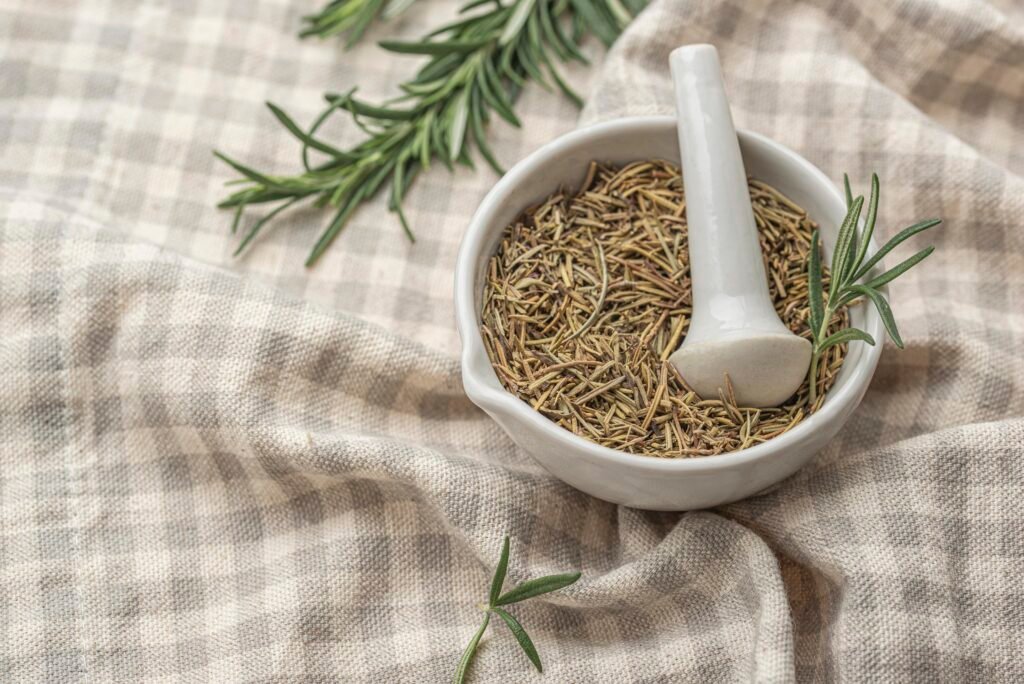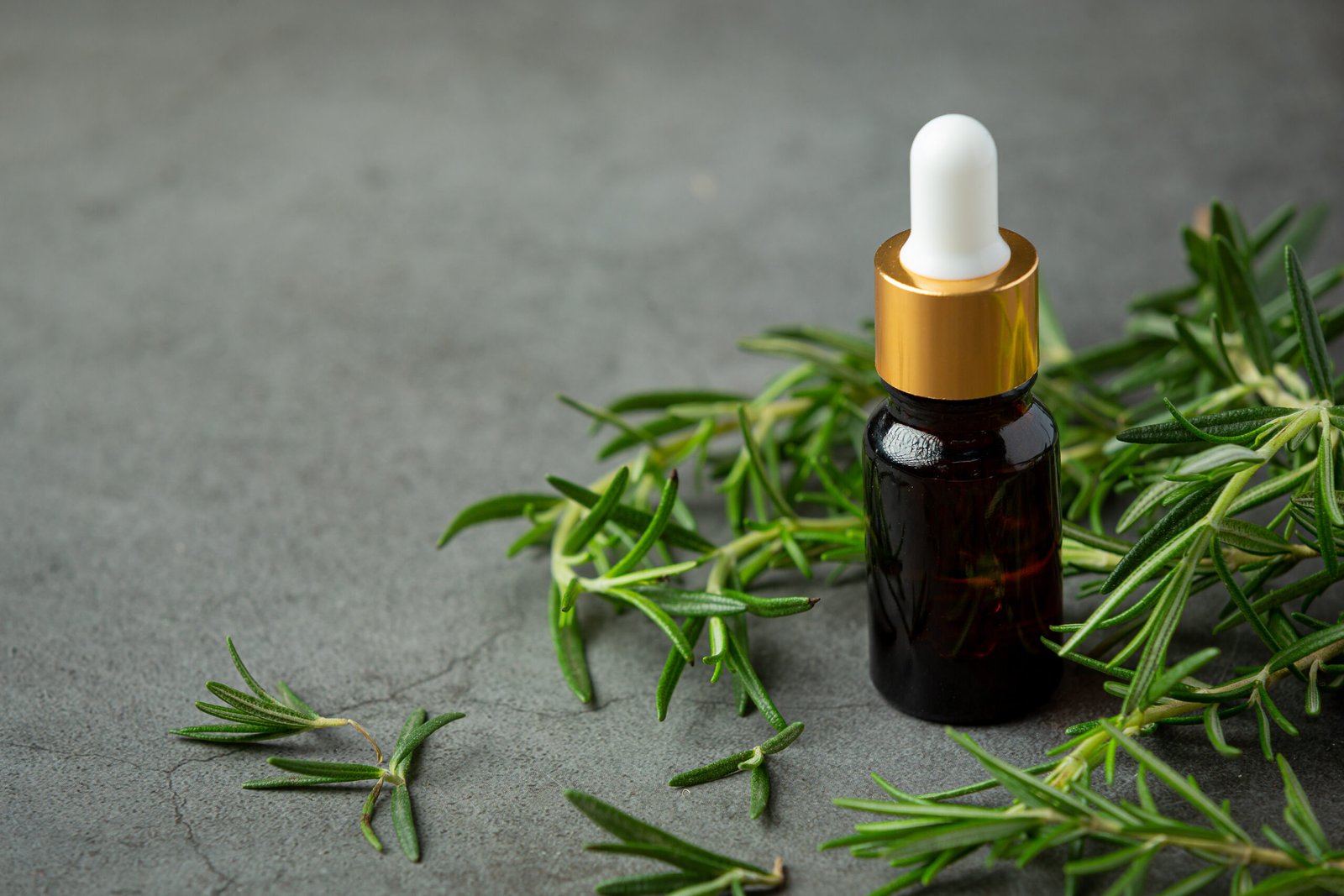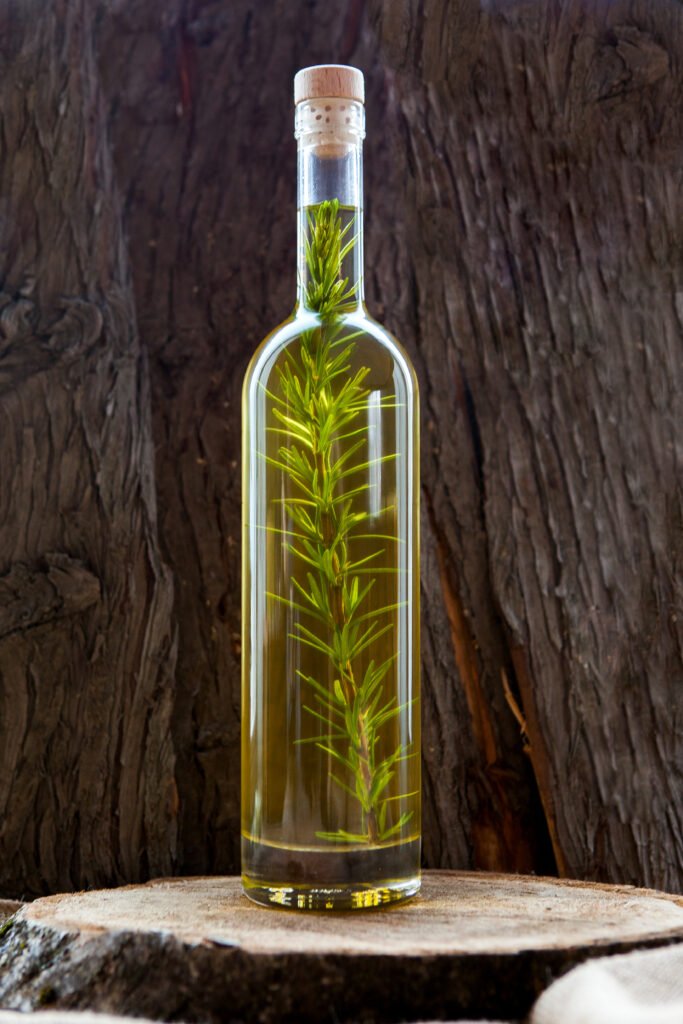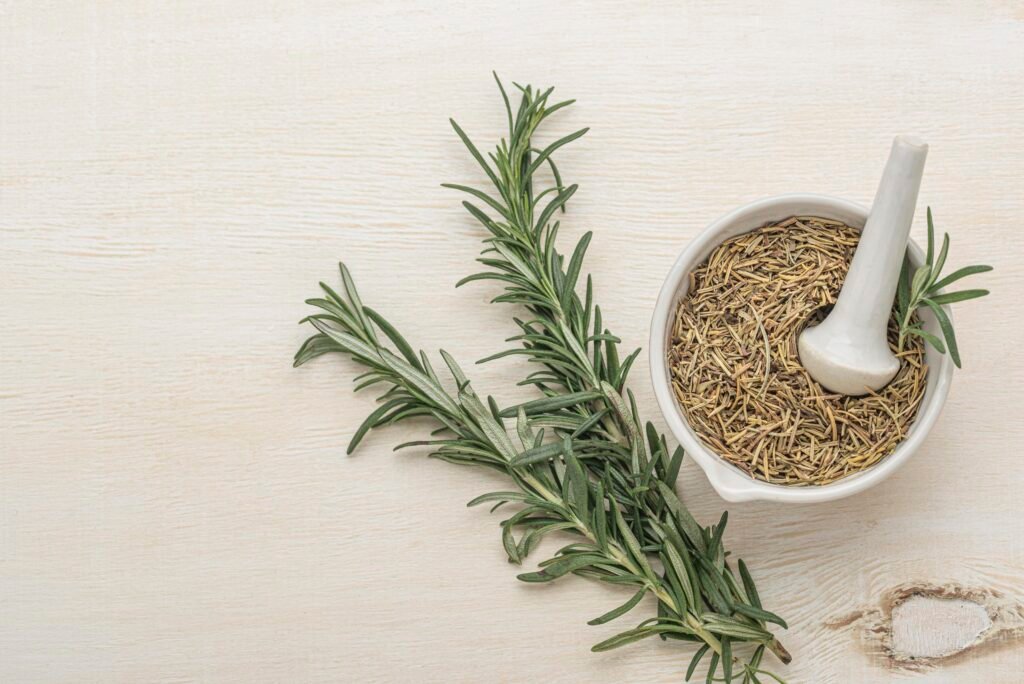Dried Rosemary Leaves: Uses, Benefits, Storage & Where to Buy in India

When it comes to natural herbs with a strong flavor and numerous health benefits, dried rosemary leaves top the list. Whether you’re a home cook, an herbal enthusiast, or someone exploring natural remedies, dried rosemary can be a game-changer in your kitchen and lifestyle. In this article, we’ll explore everything you need to know about dried rosemary leaves, including their uses, health benefits, how to store them, and where to find the best quality at an affordable rosemary leaves price.
Table of Contents
ToggleWhat Are Dried Rosemary Leaves?
Dried rosemary leaves are the dehydrated form of rosemary, a woody perennial herb native to the Mediterranean region. Known for its pine-like aroma and slightly bitter taste, rosemary is commonly used as a culinary herb, but its uses go far beyond the kitchen.
These leaves are usually air-dried or oven-dried, retaining their essential oils and aroma. Because of their long shelf life, dried rosemary plant is preferred over fresh rosemary in many households, especially for cooking and herbal remedies.
You’ll find that dried rosemary leaves are not only a flavorful addition to your dishes but also offer an array of health benefits. They are rich in antioxidants, anti-inflammatory compounds, and essential nutrients.
Benefits of Dried Rosemary Leaves
Let’s explore some of the key health benefits:

1. Rich in Antioxidants
Rosemary leaves are packed with antioxidants such as rosmarinic acid and carnosic acid. These compounds help fight oxidative stress, reducing the risk of chronic illnesses like cancer and heart disease.
2. Supports Digestive Health
Many herbalists use dried rosemary as a natural remedy for indigestion and bloating. Its essential oils can stimulate bile flow, aiding in better digestion.
3. Enhances Memory and Concentration
Research shows that the aroma of rosemary may help improve memory and concentration. This makes it popular in aromatherapy and natural mental health remedies
4. Anti-Inflammatory Properties
The compounds in rosemary leaves can help reduce inflammation in the body, making it beneficial for people with arthritis and other inflammatory conditions.
Culinary Uses of Dried Rosemary
Dried rosemary leaves are widely used in cooking, especially in Mediterranean dishes. Here are some common ways to use them:
- Seasoning for Roasted Vegetables: Add a pinch of dried rosemary for a burst of flavor.
- Herb Rubs for Meat: Use with garlic and thyme for an aromatic rub.
- Bread and Pizza Toppings: Enhance focaccia or homemade pizza with a rosemary sprinkle.
- Soups and Stews: The leaves hold up well in long cooking times.
Pro Tip: Crush the leaves slightly before using to release more aroma.
How to Store Dried Rosemary Leaves Properly
To maintain their potency, store rosemary leaves in an airtight container, away from direct sunlight and moisture. A cool, dark pantry is ideal.
Proper storage ensures that the herb retains its aroma and flavor for up to 12 months. This makes it a great staple to keep in your spice rack.

Where to Buy Dried Rosemary Leaves Online
Thanks to e-commerce, buying dried rosemary leaves is now more convenient than ever. You can find them at:
- Amazon – Offers a wide range with customer reviews.
- Local Organic Stores Online – Good for pesticide-free options.
Herbal Supply Stores – Often provide bulk purchases at a lower rosemary leaves price.
What is the Average Rosemary Leaves Price?
The rosemary leaves price can vary based on brand, packaging, and origin. On average:
- 50g Pack: ₹50 to ₹150
- 100g Organic Pack: ₹200 to ₹300
- Bulk Packs (500g or 1kg): ₹600 to ₹1000+
Organic and hand-harvested options usually cost more but offer better quality and aroma.
DIY: How to Make Dried Rosemary at Home

If you grow your own rosemary, drying it at home is simple:
- Harvest Fresh Sprigs – Cut rosemary stems before they flower.
- Tie into Bundles – Secure with string and hang upside down.
- Air Dry for 1–2 Weeks – Store in a well-ventilated area.
- Strip and Store – Once crispy, remove the leaves and store them in a jar.
This method ensures you always have dried rosemary ready for cooking or herbal use.
Dried Rosemary Leaves for Hair and Skin
The benefits of rosemary leaves aren’t limited to internal health. Here’s how they help externally:
1. Hair Growth and Scalp Health
Boil dried rosemary in water, cool it, and use as a hair rinse. It helps reduce dandruff and may promote hair growth by stimulating circulation to the scalp.
2. Anti-Acne Face Rinse
Rosemary’s antibacterial properties can help fight acne. Infuse dried rosemary leaves in water, strain, and use as a facial rinse.
Precautions and Side Effects
Although natural, rosemary leaves should be consumed in moderation:
- Pregnancy – Consult your doctor before use.
- Medication Interaction – May interfere with blood pressure or blood-thinning medications.
- Allergies – Rare but possible.
Always do a patch test before using any herbal product topically.
DIY: How to Make Dried Rosemary at Home
- Cut fresh rosemary sprigs
- Tie and hang in a dry place
- Wait 1–2 weeks until crispy
- Remove leaves and store
✔️ Homemade dried rosemary retains more of its natural oils!
Can You Use Dried Rosemary for Tea?

Yes! Dried rosemary leaves make a calming and antioxidant-rich herbal tea. Simply:
- Boil 1 tsp in water for 5 minutes
- Strain and sip warm
Add honey or lemon if desired
Beauty Uses of Dried Rosemary Leaves
Use rosemary-infused water for:
- Hair rinse – Encourages hair growth
- Skin toner – Soothes acne-prone skin
⚠️ Precautions
- Avoid high doses during pregnancy
- Check for allergies
- Consult a doctor if you’re on medications
Conclusion
Rosemary leaves are a versatile, affordable, and powerful herb to have in your home. From enhancing the flavor of your meals to promoting wellness, their benefits are far-reaching. Whether you’re looking for culinary spice, natural remedies, or even beauty solutions, rosemary offers an all-in-one solution.
When buying, always check the leaves price to ensure you’re getting quality for your money. Don’t forget to explore long-tail keywords and customer reviews when shopping online to make the best choice.
Dried rosemary leaves are widely used in Indian kitchens for enhancing the flavor of baked dishes, soups, grilled vegetables, and marinades. They add a pine-like aroma and earthy taste to pizza, pasta, roasted potatoes, and even biryani. Many home chefs also use them to season paneer and tandoori dishes.
Dried rosemary leaves are rich in antioxidants and anti-inflammatory compounds. They may help improve digestion, reduce hair fall, and enhance memory. Some studies also suggest rosemary supports immunity and may help lower blood sugar levels when used regularly in food or herbal teas.
To store dried rosemary leaves properly, keep them in an airtight glass jar in a cool, dry place away from direct sunlight. This helps preserve their aroma and potency for up to 12 months. Avoid storing near heat or moisture to prevent loss of flavor or mold growth.
Yes, dried rosemary leaves can be used to prepare rosemary water or infused oil at home, both of which are known to promote hair growth and reduce dandruff. Boil 1 tablespoon of dried rosemary in 2 cups of water, let it cool, strain, and use it as a hair rinse 2–3 times a week.
You can buy high-quality dried rosemary leaves from trusted online stores like Amazon, Flipkart, BigBasket, and specialty herbal platforms like Organic India and Natureland Organics. Always check for “100% pure” and “no additives” labels before buying.
Dried rosemary leaves have a more concentrated flavor than fresh rosemary and are ideal for slow-cooked or roasted dishes. Fresh rosemary is milder and often used as a garnish. Typically, 1 teaspoon of dried rosemary equals 1 tablespoon of fresh rosemary in recipes.
